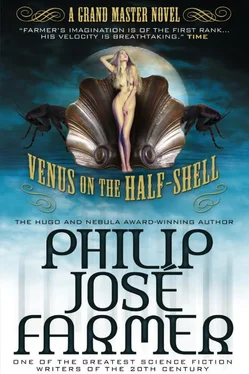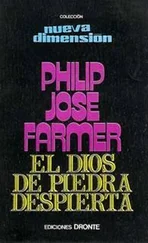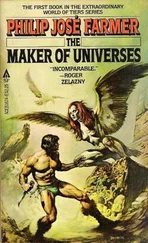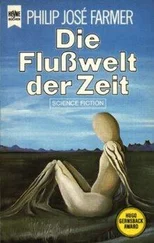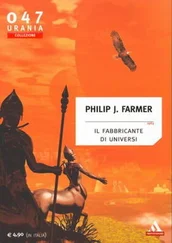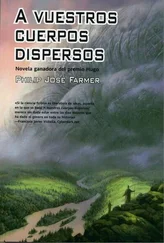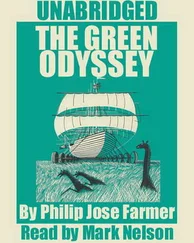Somers’ second published story, and the first to be paid for, was a Ralph von Wau Wau piece, “A Scarletin Study.” As noted, this was published in the March 1931 issue of Outré Tales. (The editor of Fantasy and Science Fiction failed to note the copyright in his introduction.) It is evident to the Sherlockian scholar that the title is a rearrangement of the title of the first story about Holmes, “A Study in Scarlet.” The initial paragraphs are also paraphrases of the beginning paragraphs of Watson’s first story, modified to fit the time and the locale of Somers’ tale. All Wau Wau stories begin with takeoffs from the first pages of stories about the Great Detective and then the story travels towards its own ends. “The Doge Whose Barque Was Worse Than His Bight,” for instance, starts with a paraphrase of Watson’s “The Abbey Grange.” “Who Stole Stonehenge?,” the third Wau Wau in order of writing, begins with a modification of the initial paragraphs of Watson’s “Silver Blaze.”
This is Somers’ way of paying tribute to the Master.
Of all his characters, the most popular are the canine private eye, Ralph von Wau Wau, and the quadriplegic spaceman, John Clayter. Those who have been unfortunate enough not to have read their adventures first-hand can find an outline of many of these in Kilgore Trout’s Venus on the Half-Shell. This might serve as an introduction, a sort of appetite-whetter. It was Trout who first pointed out that all of Somers’ heroes and heroines are physically handicapped in some respect. Ralph, it is true, is a perfect specimen. But he is disadvantaged in that he has no hands. And, being a dog, he needs a human colleague to get him into certain places or do certain things. Sam Minostentor, the great science fiction historian, has also remarked on this in his monumental Searchers for the Future. Minostentor attributes this propensity for disabled protagonists to Somers’ own crippled condition. Somers is consequently very empathetic with the physically limited.
However, Somers seldom shows his characters as being bitter. They overcome their failings with heroic efforts. They treat their condition with much laughter. In fact, they often make as much fun of themselves as their creator does of them. Some of this humor is black, it is true, but it is nevertheless humor.
“I had a choice between raving and ranting with bitter frustration or laughing at myself,” Somers said. “It was bile or bubble. I drank the latter medicine. I can’t claim any credit for this. I acted according to the dictates of my nature. Or did I? After all, there is such a thing as free will.
“My stuff has often been compared to my cousin’s stories. That is, to Kilgore Trout’s. There is some similarity in that we both often take a satirical view of humanity. But Trout believes in a mechanistic, a deterministic, universe, much like that of Vonnegut’s, for instance. Me, I believe in free will. A person can pick himself up by his bootstraps—in a manner of speaking.”
Jonathan was plunged into gloom when his grandmother died in 1950 at the age of ninety. There was not much time for despondency, however. She was no sooner cremated than he was informed that he would have to sell the huge old house in which he had lived all his life to pay for the inheritance taxes. To prevent this, he wrote eight short stories and three novels within six months. He saved the house but exhausted himself, and while resting his black mood returned. Then a new light brightened his life.
One of his numerous correspondents was a fan, another Samantha Tincrowdor. She was his mother’s cousin once removed and sister to the well-known science fiction author, Leo Queequeg Tincrowdor.
Samantha had been born in New Goshen, Indiana, but, at the time she became a Somers aficionado, she was living in Indianapolis. Somers’ letters convinced her that he needed cheering up. She quit her job as a registered nurse and came to Petersburg for an extended visit. Within two months, they were married. They have been very happy ever since, the only missing element being a child. Their interests are similar, both loving books and dogs and the quietness of village life.
Though his home is a backwater, a sort of tidal pond off the main streams of the highways, Jonathan Somers quite often gets visitors. At least once a month, fans or writers drop in for a few hours or a day or so. Bob Tucker, who lives in nearby Jacksonville, often comes by to help Somers empty a bottle of whiskey. On one occasion, he even brought his own. I live in Peoria, which is within about a two-and-a-half-hour drive of Petersburg. I go down there at least twice a year for weekend visits. Another guest is Jonathan’s relative, Leo Tincrowdor. Neither Leo nor I, however, would be caught dead drinking Tucker’s brand, Jim Beam, which we claim is fit only for peasants. The subtleties and the superbities of Wild Turkey and Weller’s Special Reserve are beyond the grasp of Tucker’s taste.
Jonathan Herowit stayed with Somers for six months after his release from Bellevue. (Somers has empathy for the mentally disadvantaged, too.) Eric Lindsay, an Aussie fan, stopped off during his motorcycle tour of the States after the Torcon. And there have been many others.
Somers’ fans will be interested in his current project.
“I plan to write a novel outside the Clayter and Wau Wau canons. It’ll take place almost a trillion years from now. It’ll be titled either Hour of Supreme Vision or Earth’s Dread Hour. Both titles are quotes from the Spoon River Anthology. The latter is from that fictitious epitaph Edgar Lee Masters wrote for my father, poor guy!”
“You don’t have many years of writing left,” I said.
He looked puzzled, then he smiled. “Ah, you mean Trout’s prediction that I’ll die in 1982.” He laughed. “That rascal put me in his novel just long enough to kill me off. Had a boy riding a bicycle ram into me. Well, that could happen. This town is hilly, and the kids do come down the steep streets with their brakes off. I did it myself before I got sick. But the way I feel right now, I’ll live to be eighty, anyway.”
I drove away that night feeling he was right. His yellow hair has turned white, and his beard is grizzled. But he looks muscular and hairy-chested, like Hemingway when he was healthy. His gusto and delight in life and literature seem to ensure his durability. His readers can look forward to many more adventures of John Clayter and Ralph von Wau Wau and perhaps a host of other characters.
Somers’ old mansion is only a few blocks from the corner of 8th and Jackson Street, where Masters’ boyhood house still stands. A sign in front says: Masters Home, Open 1-5 P.M. Daily Except Monday. I wonder if someday a similar sign will stand before Jonathan Swift Somers’ home. I wouldn’t be surprised if this does happen. But I hope it’ll be a long time from now.
AFTERWORD
TROUT MASQUE RECTIFIER
NOW IT CAN BE TOLD DIFFERENTLY—THE TRUTH ABOUT TROUT
BY JONATHAN SWIFT SOMERS III
Philip José Farmer was meta before meta was cool. Before it was even warm. He was the Christopher Columbus of science fiction in the use of such techniques as metafiction, recursive fiction, parody, pastiche, fictional biographies, real-person fiction, “true” accounts of fictional events and everything between. Or was he the Leif Ericsson of those things, bearing in mind that the Vikings discovered America centuries before Columbus did? Or was he the Saint Brendan of those things, who crossed the Atlantic five hundred years before the Vikings? Or was he even Xog of the Yellow Snow tribe, the first man to walk over the Bering Strait land bridge thousands of years before the Irish existed, of those things; the things I listed above, chiefly metafiction, recursive fiction, parody, pastiche, recursive fiction… Did I mention recursive fiction?
Читать дальше
